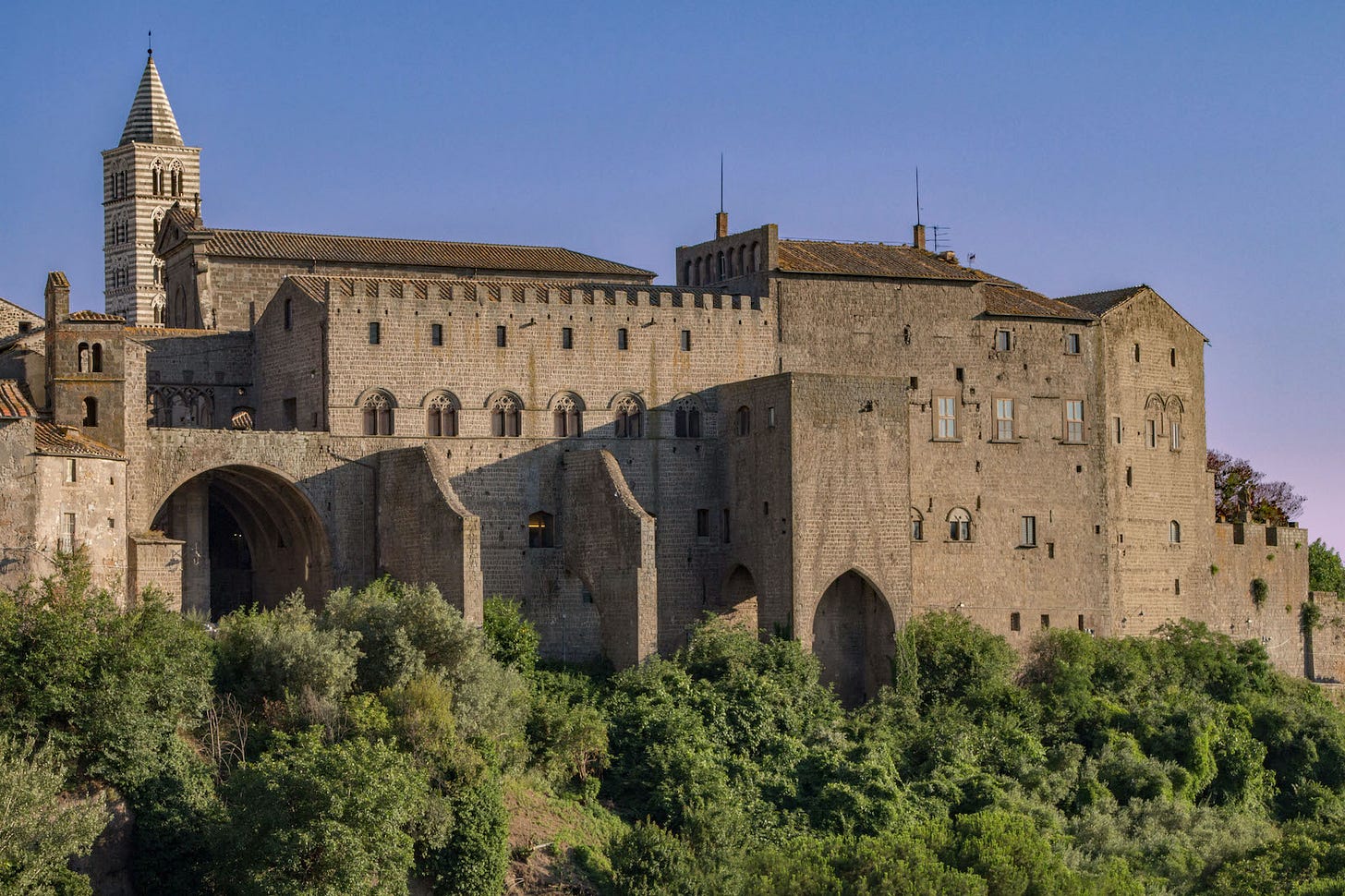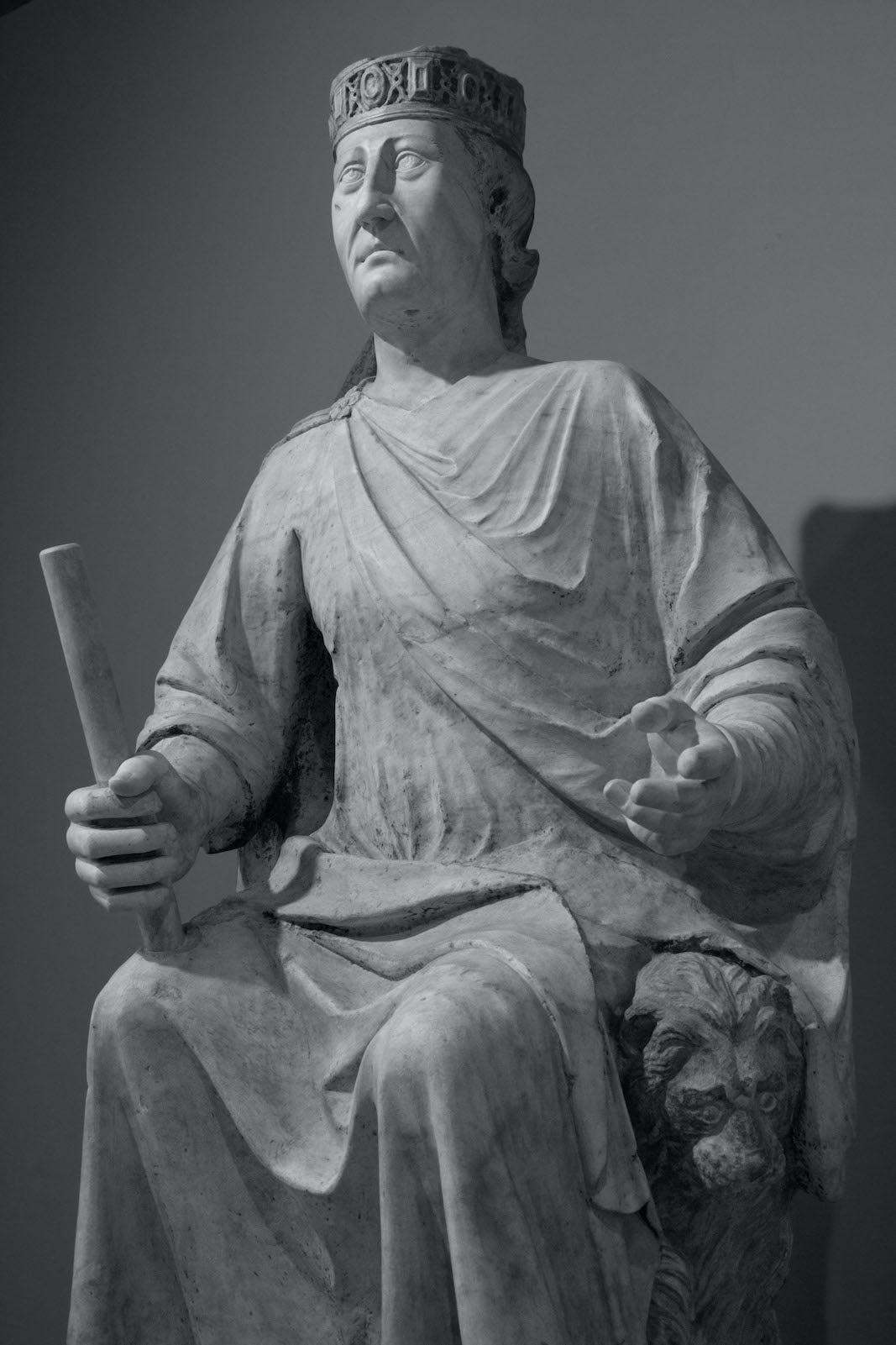History's Worst Conclave
Today's Papal Conclaves are intricate and dramatic for a reason - to avoid a repeat of the disastrous election of 1268...
Traditions exist for a reason. Even, and often especially, those which seem most unfathomable at first glance are invariably rooted in hard won wisdom. Conclave, the dramatic yet secretive mechanism for electing the Pope, is a prime example of this.
In our Wednesday article this week, we explored how the Papal succession works today, from the death of the Pope through Sede Vacante to Conclave and Habemus Papam. We similarly considered that while Papal elections consist of many stages and ceremonies, all ultimately exist for two simple reasons:
To incentivise the Cardinal Electors to arrive at a decision as swiftly as possible
To minimise the risk of outside forces unduly influencing the election
We might take for granted that speed and security are critical factors in any elective process. The importance of them, however, only became apparent following a disastrous Papal election — one that saw a man murdered in the middle of Mass, forced the Cardinals to camp under the sky, and failed to elect a pope for over 1,000 days.
Today, we recount the events that showed the Church, and the world, the need for Conclave, and explore what it reveals about our own electoral processes…
The Viterbo Papacy
The middling years of the thirteenth century were amongst the most unstable of any century for Italy.
Ever since the conquest of the Kingdom of Sicily by the German Hohenstaufen dynasty in 1194, the Papal States had found its territory entirely surrounded by realms loyal to the Holy Roman Emperor. Once upon a time, this would have been a blessing. But harmony between Pope and Emperor was a dream long since shattered, and it was paramount that the Church remained independent from the influence of foreign powers.
Thus, when the greatest sovereign of the Germanic Middle Ages, Emperor Frederick II, revered by history on account of his extraordinary intellect, wisdom and majesty as Stupor Mundi — Wonder of the World — breathed his last in 1250, Pope Innocent IV seized his chance.
Scorning Frederick's kin, Innocent promptly offered the Sicilian Crown to Prince Edmund, second son of King Henry III of England, on condition of his military support against the Germans, and a hefty payment. Since the English and Sicilian kingdoms had once both been joined by common Norman heritage, it was far from an outlandish choice. King Henry however, soon met with disaster upon attempting to levy a tax to cover the Papal bribe.
Indeed the contempt of the English nobles for this 'Sicilian business' was all but the final straw for Simon de Montfort to raise the aristocracy of Albion in revolt under a Baron's Alliance. Thus did the folly of Rome arrogate the dignity of one kingdom, and destroy the stability of another. The persistence of Alexander IV with this politicking, however, which included attempting to bait the Norwegians into undertaking a crusade against the Sicilian King Manfred, got him thrown out of Rome by a populace who openly sympathised with the Germans.
Thus, in the year of our Lord 1257 was the successor to Saint Peter forced to seek refuge in one of the few Latin towns which would suffer him — the walled and hitherto rather sleepy Latin town of Viterbo.
Alexander, with the co-operation of the city’s pro-Papal Guelph faction, swiftly set about fortifying the palace which once was that of the bishop into that of the Pope himself. As a result, the Palazzo dei Papi that still stands resembles a fortress more than a dwelling, its merlons still protruding from the top.
Despite what should have been a humbling lesson, Alexander continued to pursue aggression towards Sicily, going so far as to excommunicate King Manfred. With there being no attempt by the Papacy to conceal its lobbying of foreign powers to attack the Southern Kingdom, tensions in Europe continued to rise. Now with the English plan foiled, Alexander’s successor Pope Clement IV turned next to Charles of Anjou, the ambitious and ruthless brother of the saintly King Louis IX of France. Charles, unfettered by the unruly barons who had been the downfall of the English, took up the sham of a crusade even as his brother embarked upon a true one.
At Benevento in 1266, Charles conquered the Hohenstaufen forces, and Manfred was killed in the rout. Two years later, he crushed what remained of resistance at Tagliacozzo, and in a brutal display of the new Angevin rule in the Italian South, executed Manfred's sixteen year old nephew Conradin in the middle of Naples, to widespread outrage.
The Papacy therefore, blinded by its feud with the Hohenstaufens, had failed to see that all that had been achieved was the trading of one power for another, a reality which almost immediately dawned on the Italian Cardinals, fearful as they now were of Charles. The hard consequences of all of this would soon become painfully apparent for the Church, too, just three months after the Battle of Tagliacozzo when, on the 29th November 1268, Pope Clement IV died.
Little did the Cardinal Electors, or all Europe, know that what was about to occur ensured the Church would never be the same again. For the ordeal of this election in Viterbo would be the progenitor of the revered Papal Conclave…
The Election Begins
Since custom dictated that Papal elections should take place in the same city where the previous Pope had died, the Cardinals assembled in the Cathedral of Viterbo.
There were at the time, twenty Cardinals, but one, the Frenchman Raoul de Grosparmy, was serving on the Eighth Crusade alongside King Louis IX. Both would soon die outside the walls of Tunis. The remaining nineteen were broadly, and perfectly, split between those who favoured Charles and the Angevin cause, and those who were appalled at his slaying of Conradin just weeks earlier, and would sooner die than see a Frenchman on the Papal Throne.
At first, it progressed like any other election. The Cardinals met in San Lorenzo, and took a vote once a day, before retiring to their quarters. Matters, however, soon grew acrimonious when it emerged that the sharp pro and anti-Angevin division among the electors was only the half of it, as even deeper splits along family lines and personal interest were further paralysing the votes. As a result, achieving the two-thirds majority necessary for the election of a new Pope only ever seemed further away.
In one moment of uncharacteristic energy however, the Cardinals, seized by inspiration, turned to an outsider, Filippo Benizi, leader of the Servite Order. A majority was found, and the Cardinals rejoiced. Benizi, however, did not. Declaring himself unworthy of the Papal Tiara, he promptly fled Viterbo to live in a grotto in Val d'Orcia.
Despair set in, as days bled into months and a new year dawned. The toll of this delay only grew, and matters took a morbid turn with the death of Cardinal Giordano Pironti of old age, and then Cardinal Stephen Báncsa — the first Hungarian to ever be elevated to the cardinalate — during the proceedings.
Frustration turned to farce, as Western Christendom itself witnessed the coming and going of a second Christmas with no Supreme Pontiff. Yet as the affairs of Europe were immobilised by the petulance and indecision of the electors, nowhere was the frustration more acute than in the city government itself. Alarmed at the spiralling costs of hosting the election, with the arrival of the summer of 1270, desperate times called for desperate measures, as the decision was taken to shame the Cardinals into action…







